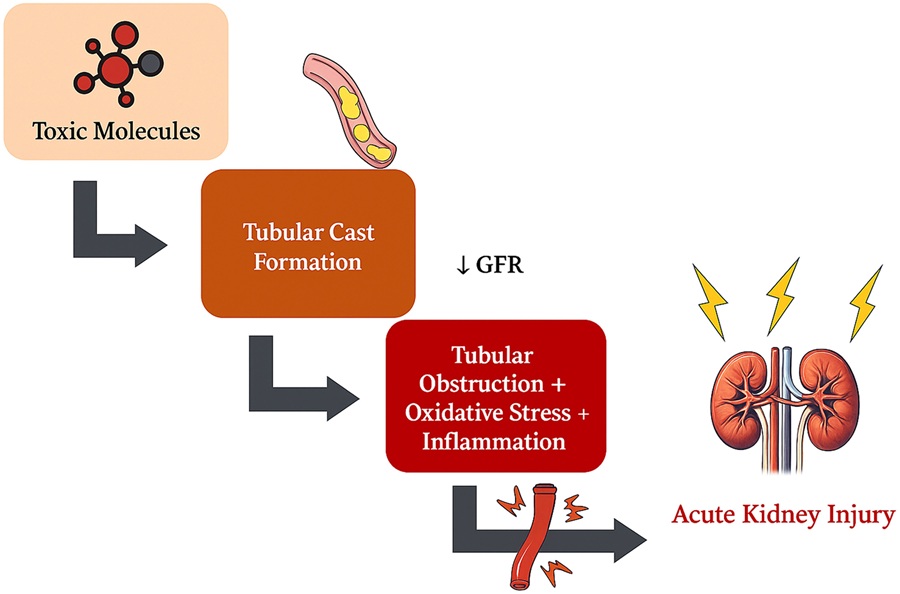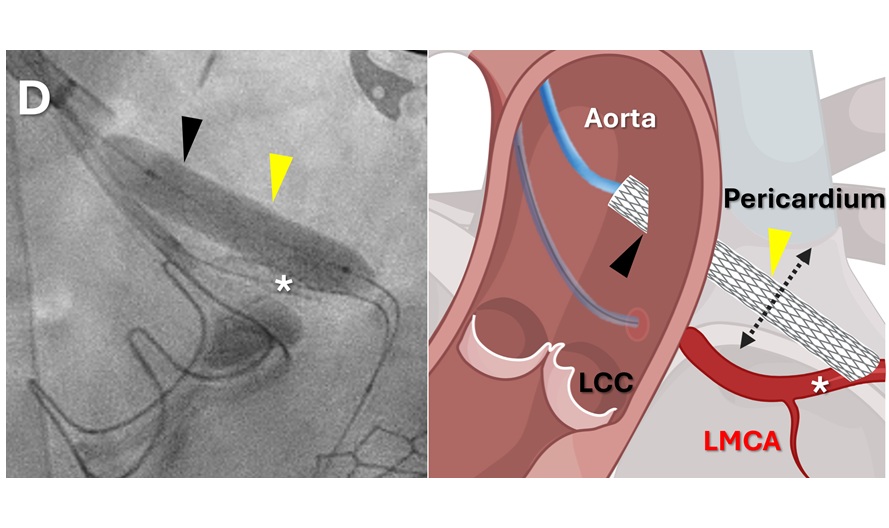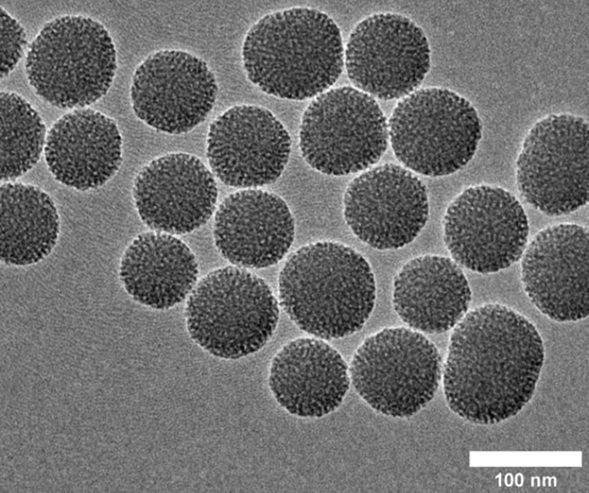Ferritin Level in Anemic Patients Can Indicate Colon Cancer
|
By HospiMedica staff writers Posted on 17 May 2007 |
The ferritin level of an anemic person's blood may help healthcare providers decide whether to order a colonoscopy to see if colon cancer is the problem.
One of the leading reasons to look for colon cancer is the presence of iron-deficiency anemia, since bleeding from such a cancer may cause loss of iron from the body. Ferritin is a measure of how much iron your body has stored for future use; low levels are considered diagnostic of iron deficiency. However, other conditions (such as inflammation) may increase ferritin and hamper recognition of iron deficiency.
A study by investigators at the Minneapolis Veteran's Administration (VA) Hospital (MN, USA) found that looking at the ferritin level in individuals with anemia may provide additional information on risk of colon cancer. For this retrospective study, they examined the data on 414 people (almost all older men) who had a colonoscopy because they had anemia, and 323 people who had no symptoms or anemia but had a colonoscopy as a routine screening for colon cancer. All subjects in the study had no abdominal symptoms and no documented intestinal bleeding. The mean age of those studied was 69 years old. All those with anemia also had measurement of ferritin shortly before the colonoscopy was performed. The authors studied four groups: those with no anemia, and those with anemia who had ferritin levels that were low (50 ng/ml or less), low normal (51-100 ng/ml), or not low (above 100 ng/ml).
As expected, those with iron deficiency (low ferritin) were significantly more likely to have a cancerous or pre-cancerous condition in the colon (called advanced colonic neoplasia). However, those with anemia and low normal ferritin were just as likely to have advanced colonic neoplasia. In contrast, those with anemia but without low or low normal ferritin were no more likely to have advanced colonic neoplasia than those who did not have anemia.
When age was factored in, indivdiuals with serum ferritin levels below 100 ng/ml were almost five times more likely to have colon cancer or high-risk types of polyps, observed the investigators. For men with unexplained anemia, they concluded that a ferritin level below100 ng/ml is a reason to promptly refer these patients for colonoscopy. The test helps determine if the anemia is related to colon cancer.
Related Links:
Minneapolis VA Hospital
One of the leading reasons to look for colon cancer is the presence of iron-deficiency anemia, since bleeding from such a cancer may cause loss of iron from the body. Ferritin is a measure of how much iron your body has stored for future use; low levels are considered diagnostic of iron deficiency. However, other conditions (such as inflammation) may increase ferritin and hamper recognition of iron deficiency.
A study by investigators at the Minneapolis Veteran's Administration (VA) Hospital (MN, USA) found that looking at the ferritin level in individuals with anemia may provide additional information on risk of colon cancer. For this retrospective study, they examined the data on 414 people (almost all older men) who had a colonoscopy because they had anemia, and 323 people who had no symptoms or anemia but had a colonoscopy as a routine screening for colon cancer. All subjects in the study had no abdominal symptoms and no documented intestinal bleeding. The mean age of those studied was 69 years old. All those with anemia also had measurement of ferritin shortly before the colonoscopy was performed. The authors studied four groups: those with no anemia, and those with anemia who had ferritin levels that were low (50 ng/ml or less), low normal (51-100 ng/ml), or not low (above 100 ng/ml).
As expected, those with iron deficiency (low ferritin) were significantly more likely to have a cancerous or pre-cancerous condition in the colon (called advanced colonic neoplasia). However, those with anemia and low normal ferritin were just as likely to have advanced colonic neoplasia. In contrast, those with anemia but without low or low normal ferritin were no more likely to have advanced colonic neoplasia than those who did not have anemia.
When age was factored in, indivdiuals with serum ferritin levels below 100 ng/ml were almost five times more likely to have colon cancer or high-risk types of polyps, observed the investigators. For men with unexplained anemia, they concluded that a ferritin level below100 ng/ml is a reason to promptly refer these patients for colonoscopy. The test helps determine if the anemia is related to colon cancer.
Related Links:
Minneapolis VA Hospital
Latest Critical Care News
- Pill Reports from Stomach When It Has Been Swallowed
- Wireless Sensing Technology Enables Touch-Free Diagnostics of Common Lung Diseases
- Early Detection and Targeted Blood Purification Could Prevent Kidney Failure in ICU Patients
- New Cancer Treatment Uses Sound-Responsive Particles to Soften Tumors
- Sprayable Powder-Type Hemostatic Agent Stops Bleeding in One Second
- Ultra-Stable Mucus-Inspired Hydrogel Boosts Gastrointestinal Wound Healing
- AI Model Helps Diagnose Often Undetected Heart Disease from Simple EKG
- E-Tattoos Harvest Energy and Monitor Health in Real Time
- Focused Ultrasound Tricks Tumors into Marking Themselves for Destruction
- World's Smallest Programmable Robot Opens Up New Possibilities in Medicine
- Remote Ventilate View Platform Enables Real-Time Monitoring of Patient-Ventilator Asynchrony
- Soft “Cyborg” Cardiac Patches Improve Stem Cell Heart Repair
- Soft Wearable System Offers Continuous Wireless Monitoring of Neonatal Health
- AI-Enhanced Wearables Could Transform Type 2 Diabetes and Prediabetes Care
- Breathable Electronic Skin Paves Way for Next-Generation Wearable Devices
- AI Transforming Colon Cancer Diagnosis
Channels
Critical Care
view channel
Pill Reports from Stomach When It Has Been Swallowed
Failure to take medications on time is a major challenge in healthcare and contributes to hundreds of thousands of preventable deaths and billions of dollars in avoidable costs each year.... Read more
Wireless Sensing Technology Enables Touch-Free Diagnostics of Common Lung Diseases
Diagnosing lung diseases often requires physical contact, imaging scans, or specialized equipment, which can limit access in low-resource settings and increase infection risk during outbreaks.... Read more
Early Detection and Targeted Blood Purification Could Prevent Kidney Failure in ICU Patients
Acute kidney injury (AKI) is one of the most dangerous complications in intensive care units, affecting up to half of critically ill patients and sharply increasing mortality risk. A common but preventable... Read moreSurgical Techniques
view channel
Minimally Invasive Coronary Artery Bypass Method Offers Safer Alternative to Open-Heart Surgery
Coronary artery obstruction is a rare but often fatal complication of heart-valve replacement, particularly in patients with complex anatomy or prior cardiac interventions. In such cases, traditional open-heart... Read more
Injectable Breast ‘Implant’ Offers Alternative to Traditional Surgeries
Breast cancer surgery can require the removal of part or all of the breast, leaving patients with difficult decisions about reconstruction. Current reconstructive options often rely on prosthetic implants... Read morePatient Care
view channel
Revolutionary Automatic IV-Line Flushing Device to Enhance Infusion Care
More than 80% of in-hospital patients receive intravenous (IV) therapy. Every dose of IV medicine delivered in a small volume (<250 mL) infusion bag should be followed by subsequent flushing to ensure... Read more
VR Training Tool Combats Contamination of Portable Medical Equipment
Healthcare-associated infections (HAIs) impact one in every 31 patients, cause nearly 100,000 deaths each year, and cost USD 28.4 billion in direct medical expenses. Notably, up to 75% of these infections... Read more
Portable Biosensor Platform to Reduce Hospital-Acquired Infections
Approximately 4 million patients in the European Union acquire healthcare-associated infections (HAIs) or nosocomial infections each year, with around 37,000 deaths directly resulting from these infections,... Read moreFirst-Of-Its-Kind Portable Germicidal Light Technology Disinfects High-Touch Clinical Surfaces in Seconds
Reducing healthcare-acquired infections (HAIs) remains a pressing issue within global healthcare systems. In the United States alone, 1.7 million patients contract HAIs annually, leading to approximately... Read moreHealth IT
view channel
EMR-Based Tool Predicts Graft Failure After Kidney Transplant
Kidney transplantation offers patients with end-stage kidney disease longer survival and better quality of life than dialysis, yet graft failure remains a major challenge. Although a successful transplant... Read more
Printable Molecule-Selective Nanoparticles Enable Mass Production of Wearable Biosensors
The future of medicine is likely to focus on the personalization of healthcare—understanding exactly what an individual requires and delivering the appropriate combination of nutrients, metabolites, and... Read moreBusiness
view channel
Philips and Masimo Partner to Advance Patient Monitoring Measurement Technologies
Royal Philips (Amsterdam, Netherlands) and Masimo (Irvine, California, USA) have renewed their multi-year strategic collaboration, combining Philips’ expertise in patient monitoring with Masimo’s noninvasive... Read more
B. Braun Acquires Digital Microsurgery Company True Digital Surgery
The high-end microsurgery market in neurosurgery, spine, and ENT is undergoing a significant transformation. Traditional analog microscopes are giving way to digital exoscopes, which provide improved visualization,... Read more
CMEF 2025 to Promote Holistic and High-Quality Development of Medical and Health Industry
The 92nd China International Medical Equipment Fair (CMEF 2025) Autumn Exhibition is scheduled to be held from September 26 to 29 at the China Import and Export Fair Complex (Canton Fair Complex) in Guangzhou.... Read more















